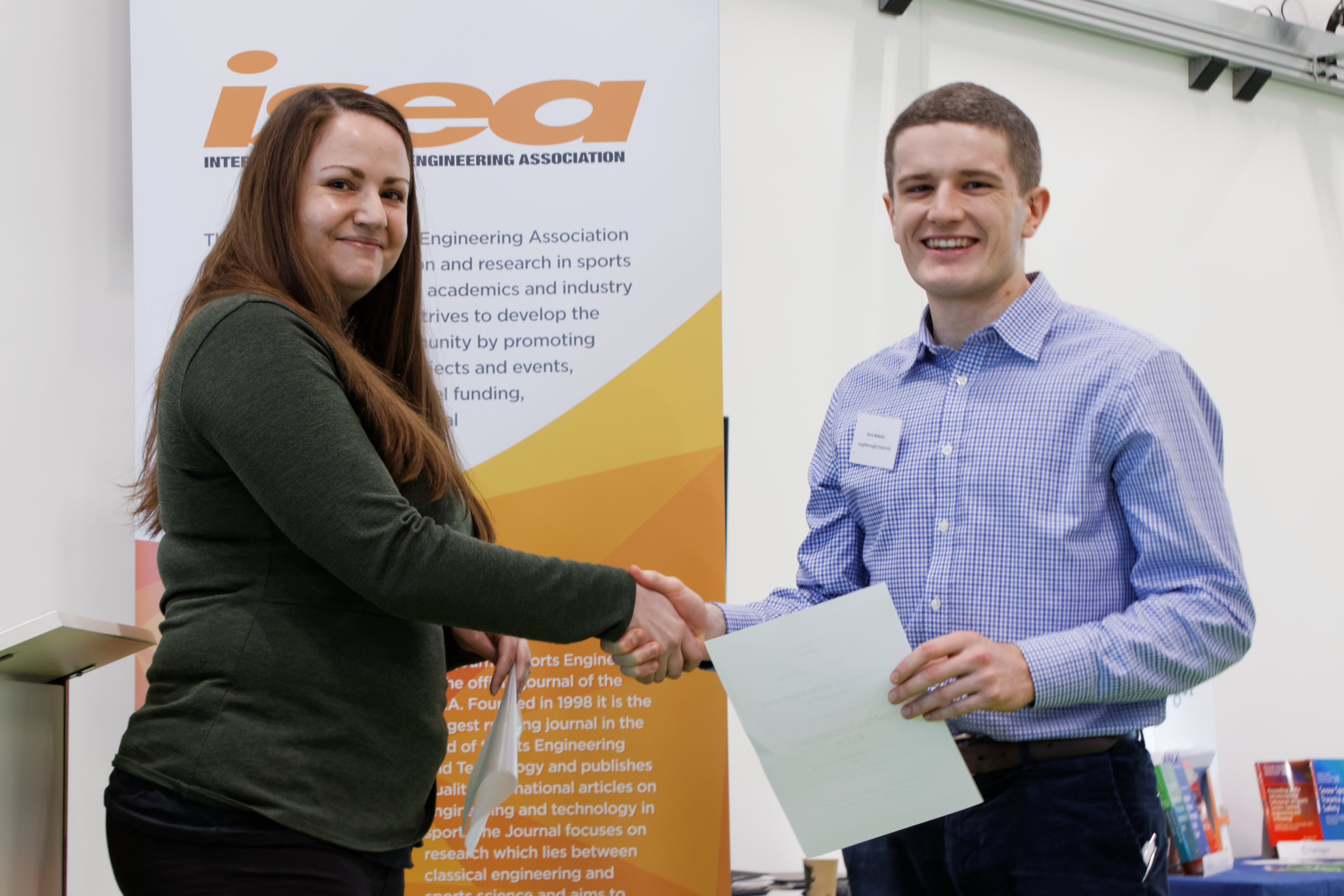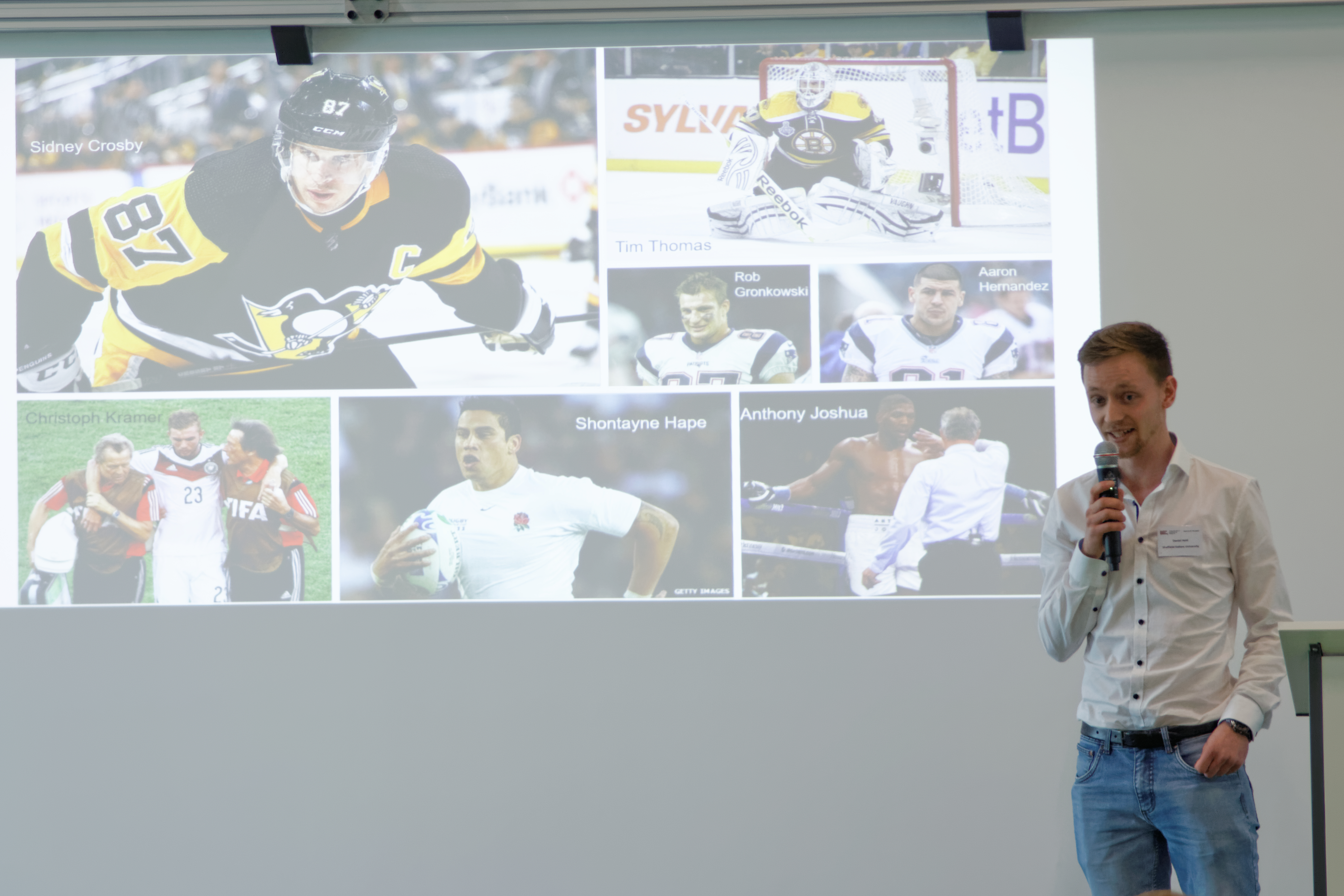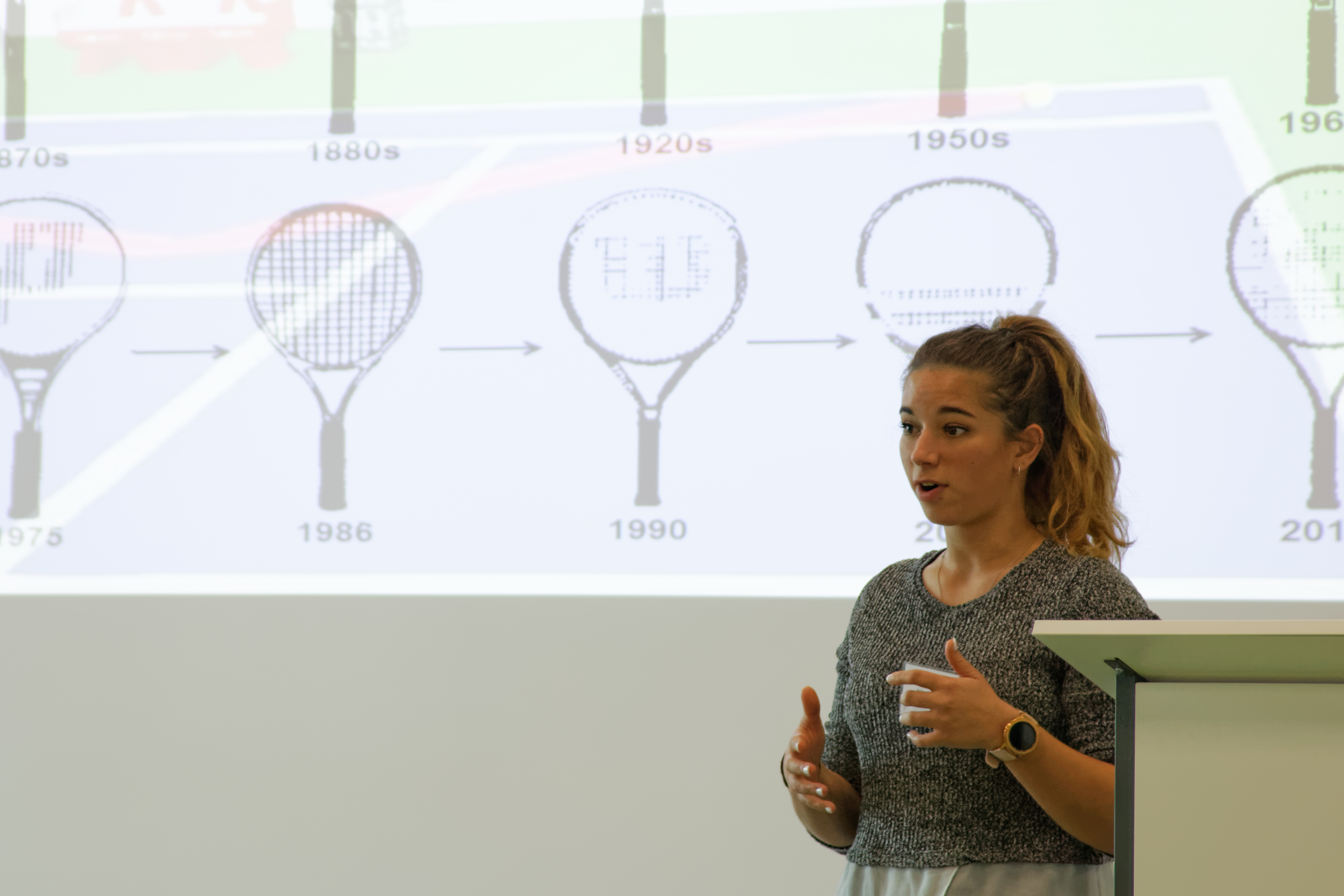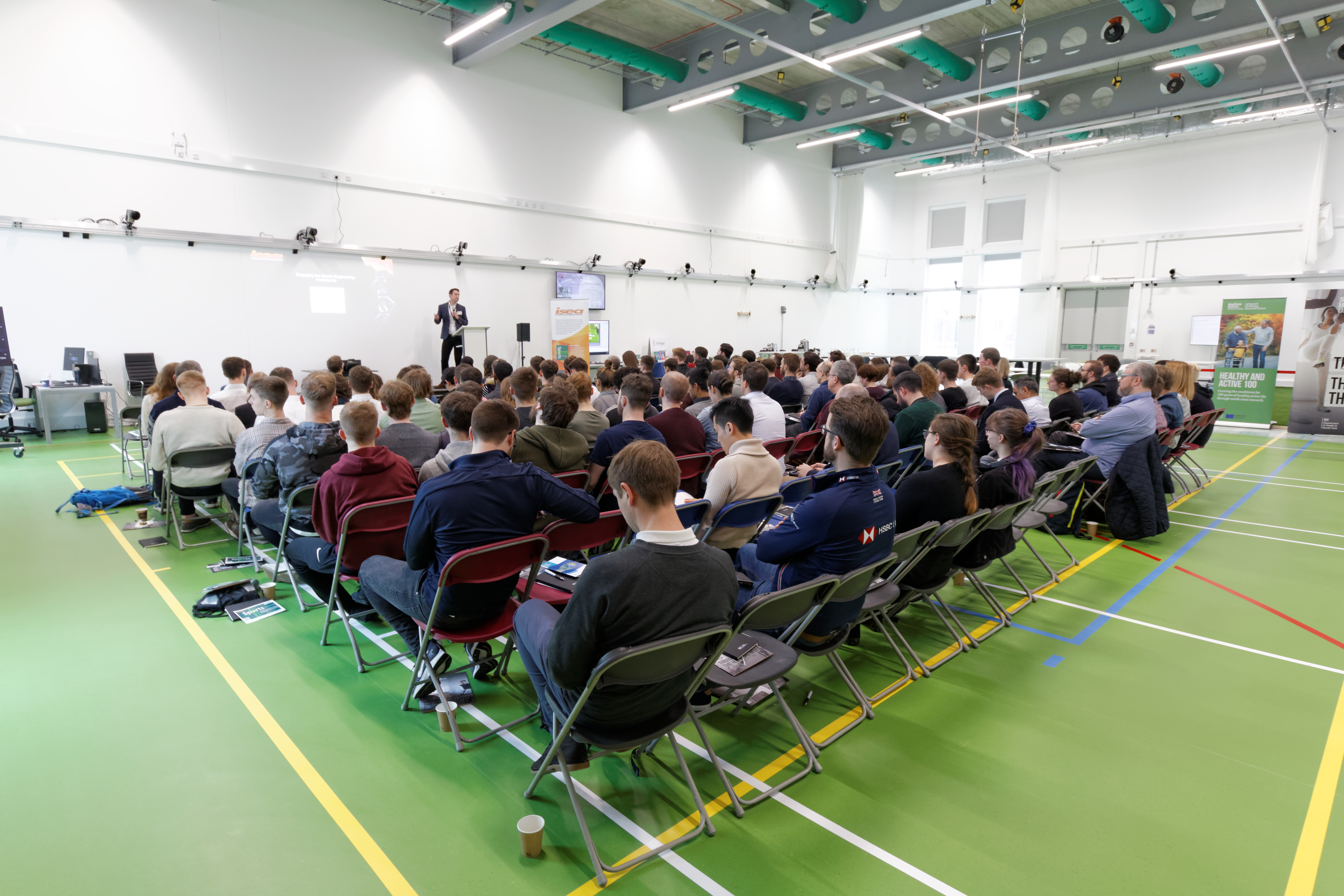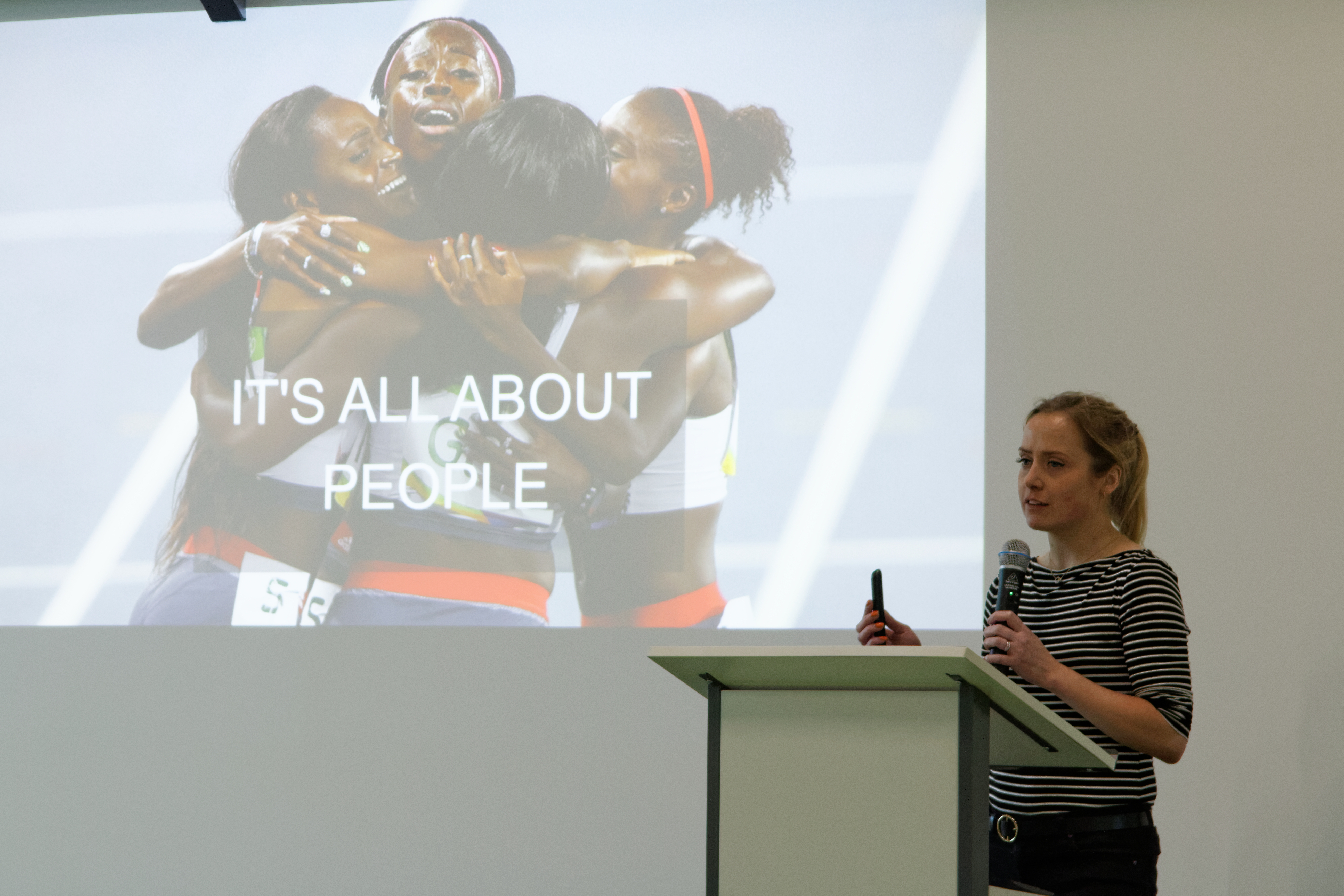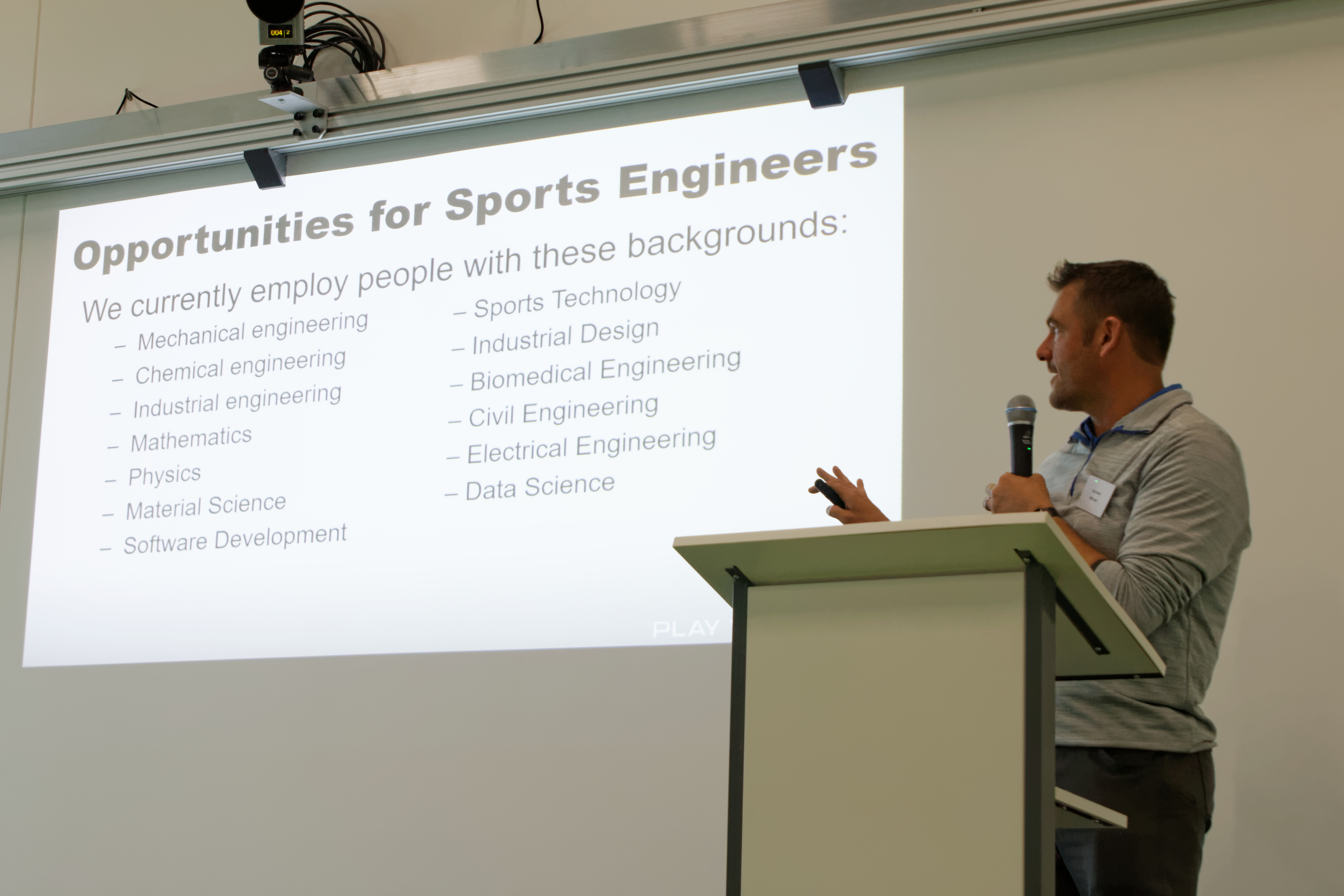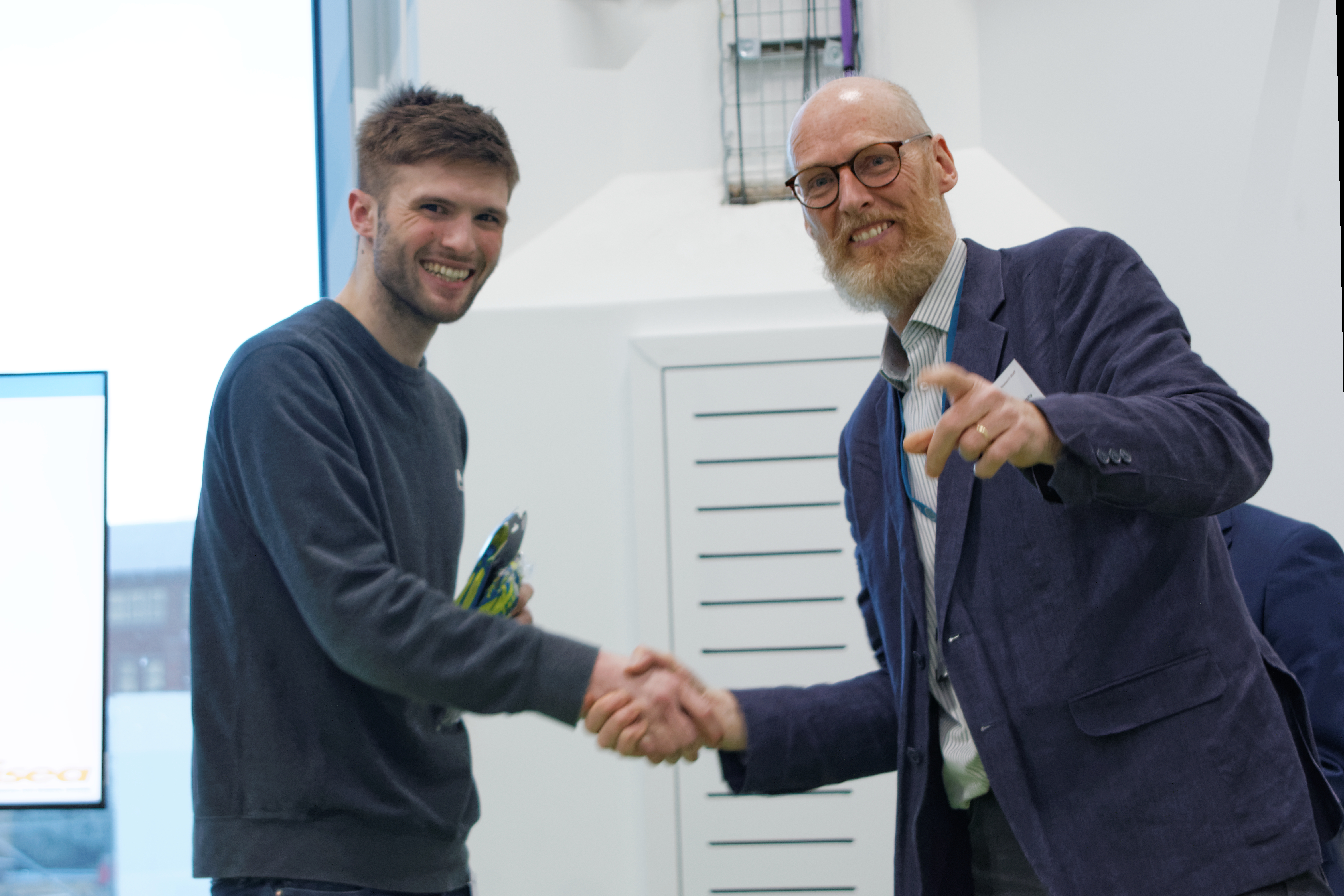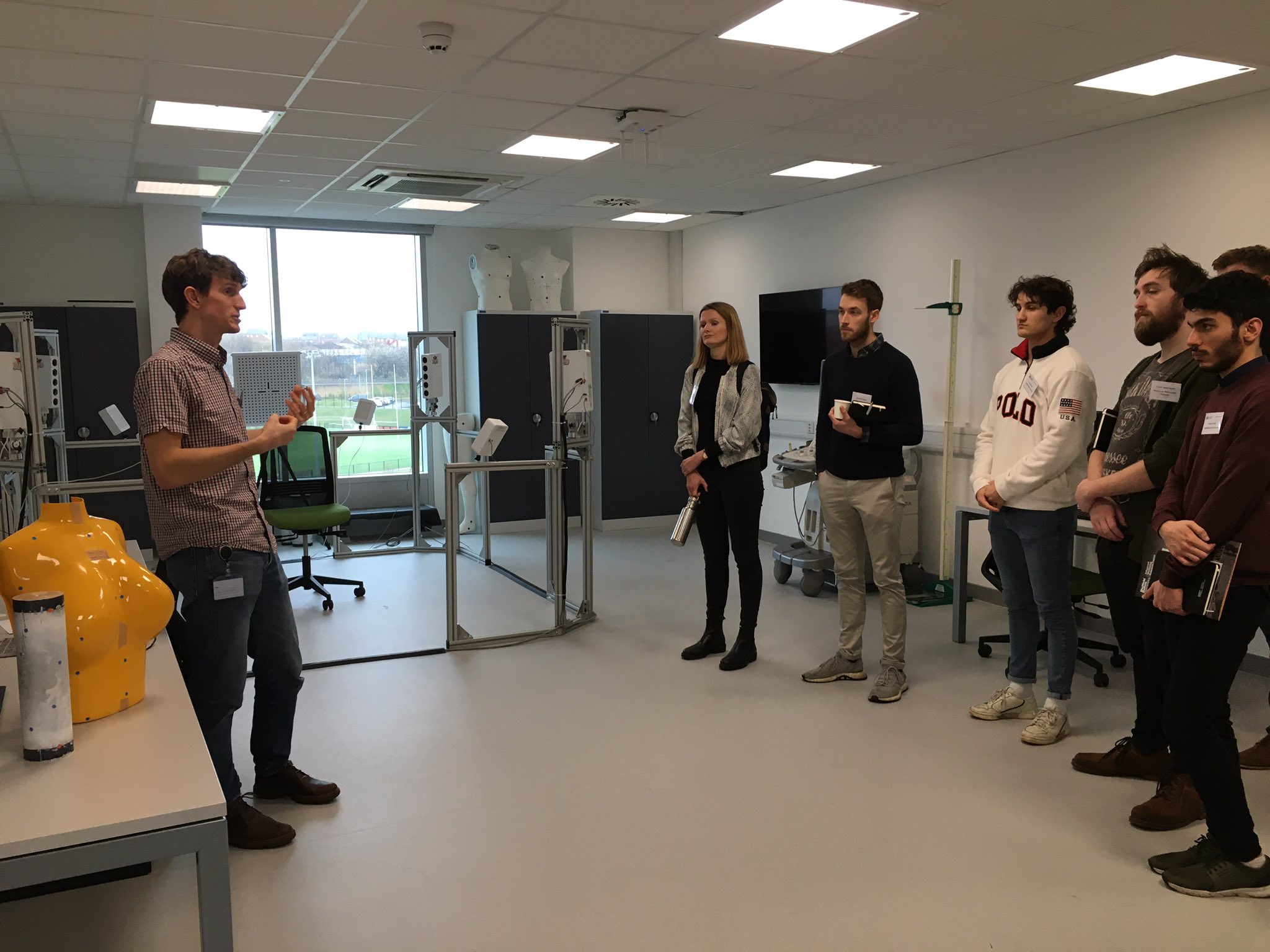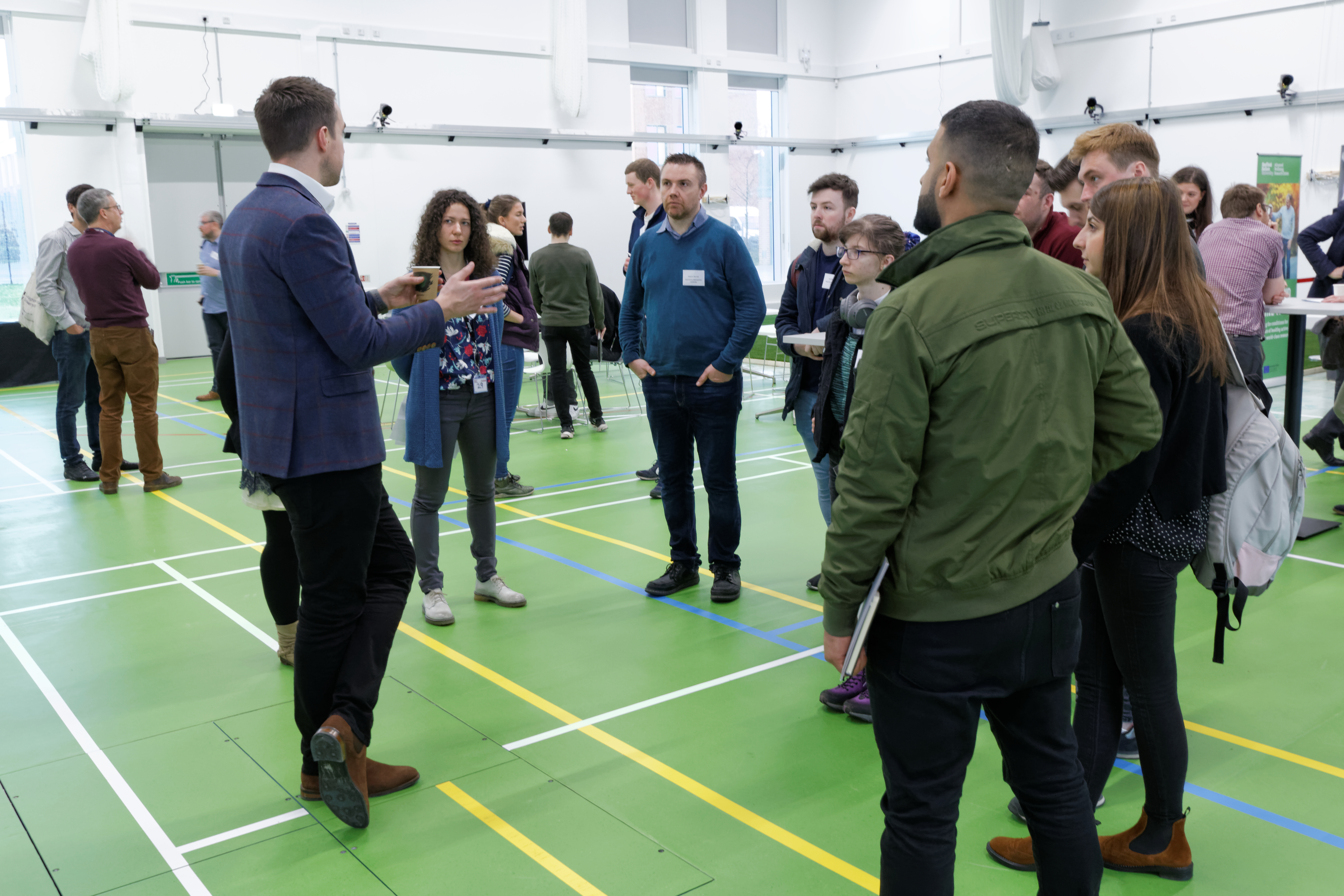Mike Thelwell
This was the 4th instalment of the annual Sports Engineering Seminar Day, hosted by the Centre for Sports Engineering Research and the Advanced Wellbeing Research Centre at Sheffield Hallam University. This was a student organised one-day event, bringing together students and current sports engineers to develop their professional networks and learn about recent developments within the field of sports engineering. The primary aim of this year’s event was to inspire all of the students in attendance to pursue a successful career within the exciting and varied field that is sports engineering, whether that be further study and academia, or in industry. Without the support provided by the ISEA Engaging Sports Engineering Grant this event would not have been possible.
This year’s event began with presentations from the ISEA and Springer, discussing opportunities for funding and publishing within sports engineering. This was followed by presentations from industry partners PING Golf and the English Institute of Sport, communicating advances being made within the field. These presentations also highlighted to student delegates the wide range of potential career paths that exist for successful careers within sports engineering. Delegates were then given guided tours around the recently opened AWRC facility, demonstrating the centre’s capabilities in the areas of design engineering, human morphology, biomechanics, physiology and applied computing.
A number of new sessions were added to this year’s programme in response to feedback from last year’s event, primarily to further increase the engagement of student attendees and to allow more opportunities for networking and career development. First, MSc and PhD student delegates were invited to take part in the inaugural Seminar Day Student Speaking Competition. This was a Three Minute Thesis (3MT) style competition, challenging students to deliver a compelling spoken presentation on a chosen research topic and its significance, in just three minutes! This was an excellent opportunity for students to develop their communication skills and to share their research interests to the broader sports engineering community. 4 MSc and 10 PhD students from Sheffield Hallam University, Loughborough University, University of Sheffield and Manchester Metropolitan University took part in this year’s competition and all delivered excellent orations covering a wide array of research topics. Prizes were awarded to the best MSc and PhD speakers, with prizes provided by Springer.
This was followed by a Q&A session, where student alumni who are now working in the sports engineering industry came and discussed their routes from study into their current roles. The seminar day culminated in a panel discussion made up of academic and industry experts discussing the topic of: How to get a job in sports engineering. Both of these sessions were great opportunities for students to learn from established professionals within the industry about what skills are required for success and what employers are looking for. Both of these sessions enabled interactive dialogue between our speakers and the delegates in attendance and hopefully provided them with greater insight into what it takes to be successful in sports engineering. Prizes were awarded for student engagement during the event and posts on social media, with prizes supplied by inov-8. Social media engagement throughout the day was very good, with 722 engagements with 28 posted tweets on the SportsEngUK twitter page.
In total, 120 delegates from across 7 universities and 15 industrial partners attended the event, maintaining the attendance levels from previous events. Student delegates at all levels of study (undergraduate, masters and doctoral) were represented at the event, ensuring that future generations of sports engineering professionals were engaged with the event. Excitingly, the delegates in attendance at this year’s event were from universities and industry partners from across the world, including: Technológico de Monterrey (Mexico), PING Golf (USA), Composite Jazz (Italy) and the Rafa Nadal Academy (Spain). It is hoped that this will further increase the global reach of sports engineering field and enable future international collaborations.
Feedback from this year’s event was very positive, with 72% of respondents rating the day as “very good” and the remaining 28% rating the day as “good”. Areas which delegates enjoyed most were the strong focus on career development and opportunities for networking throughout the day. Constructive feedback for areas in which the event could have been improved was also collected and will be passed onto the organisers at Manchester Metropolitan University to ensure that next year’s event is even more successful.
As mentioned, this activity was made possible by the generous funding provided by the ISEA Engaging Sports Engineering Grant to meet the shortfall in associated cost, after contributions from the hosts CSER and the AWRC. As such the awarded grant application was used in full to pay for event costs, such as: catering, stage hire, programme design and printing. On behalf of the event organisers, we would like to thank CSER and the AWRC for hosting, the ISEA for supporting the event, as well as Springer and inov-8 for providing prizes. We would also like to thank all the speakers who came to share their experiences with the delegates and to all the attendees for fully engaging to make the event such a success.
